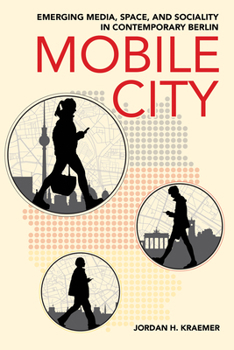Mobile City: Emerging Media, Space, and Sociality in Contemporary Berlin
In Mobile City, Jordan H. Kraemer charts the rise of social media and an emerging "knowledge" class in early-2000s Berlin. Many young Germans and EU-Ausl nder (foreigners from other EU countries), attracted to Berlin's vibrant post-unification counterculture, moved to the city just as they began using social media like Facebook and Twitter. Social media and Berlin alike became hip sites for urban, middle-class aspirations, but, as Kraemer accounts, social media users became embroiled in contestations over class mobility and identity, as urban planners and developers remade Berlin into a neoliberal "creative city."
The rise of this creative city involved scale-making projects that fused imaginaries of digital technologies with the expansive impulses of late capital: a vision of world peace and economic cooperation through global interconnection. But in Berlin, scalar transformations were lived out through ordinary practices that reconfigured daily sociality, mobility, and urban space. Mobile City explores how digital media practices forged emergent scales like the global and supranational yet were equally complicit in potential European disintegration and illiberalism.





